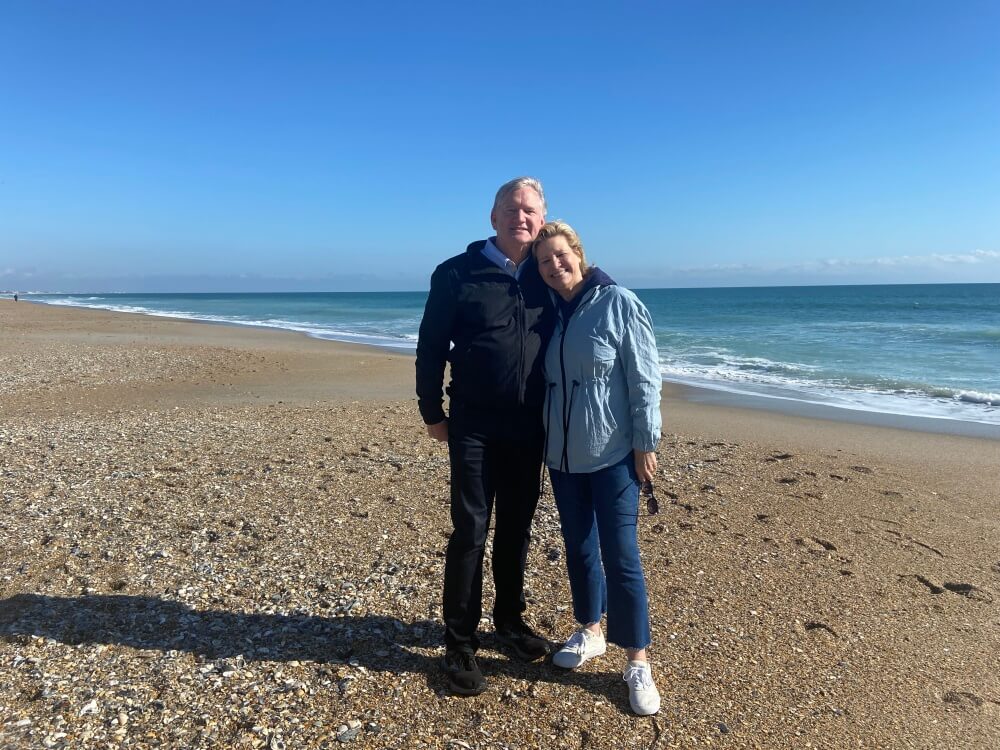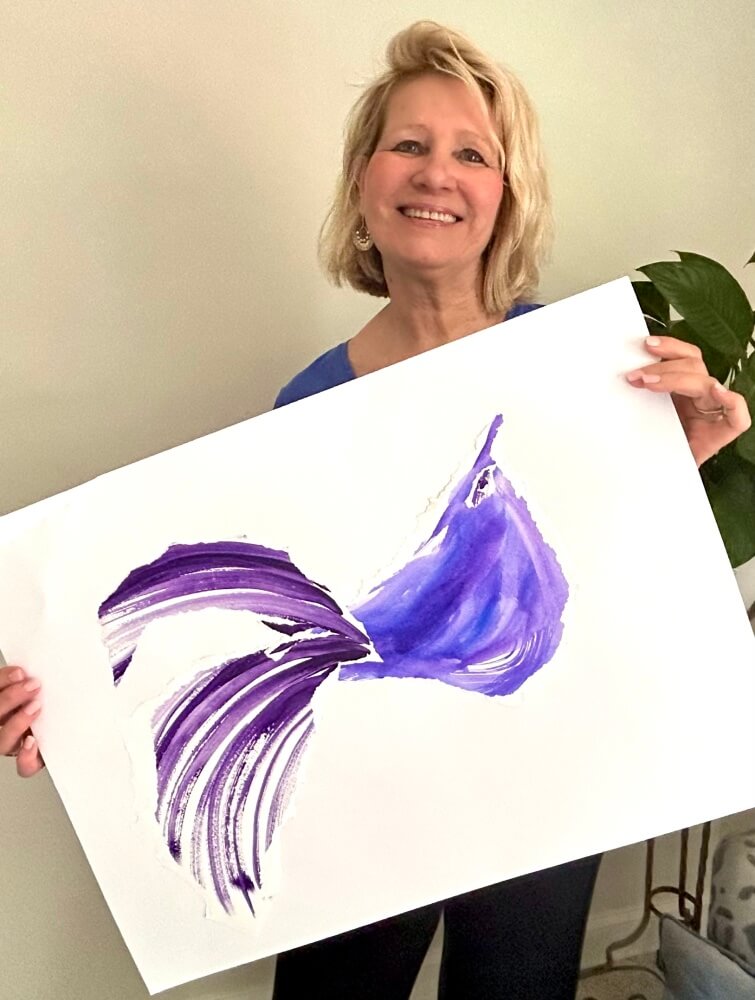Patricia Smith’s experience with cancer will stay with her for the rest of her life. “Walking through deep waters changes you,” she says. “You’re still the same person, but you’re different.”
In 2009, Smith was diagnosed with B-cell diffuse lymphoma after she experienced weeks of fatigue and found a lump under her right arm. She and her husband had only just moved back to their home state, Massachusetts, after decades in Southern California. Looking back, that move felt fortuitous since it put her within driving distance of all the medical resources Boston had to offer.
She began treatment at Cape Cod Hospital but not before consulting with Dana-Farber’s David Fisher, MD, who partners with the facility to bring Dana-Farber cancer expertise to a smaller community outside Boston. Thirteen months after her chemotherapy was finished, Smith’s cancer returned. This time she came directly to Dana-Farber, where Fisher began the process of a stem cell transplant.
The treatment was difficult, but successful, and with her cancer in remission, Smith faced a new chapter: survivorship.

Staying in touch
Smith has a deep appreciation for her treatment team. “Across the board, I was treated with respect,” she says. “They saw me as a person as well as a patient and that meant a lot.”
Smith is grateful that she can keep in touch with Dana-Farber through its Adult Survivorship Program, which has helped her monitor her health for the last 12 years. The chemotherapy she received has the potential to affect her heart, and there is a risk of developing skin cancer at the site where she had radiation therapy. Her current survivorship nurse practitioner, Abigail Ciampa, NP, keeps an eye out for any worrying signs.
When treatment ended, there was a “natural anxiety,” Smith says. Any weird feeling in her body seemed to be a sign of the cancer returning, she thought, and early survivorship appointments were nerve-wracking. What if the lab results brought bad news?
“But I felt like I was in good hands,” Smith says, and the survivorship support was comforting to her. Ciampa and the survivorship team are a resource of knowledge and support. They can answer questions about nutrition and fitness and reassure her about any concerns she has. Of course, the worry is still there, but not like it used to be.
Changing course
“What am I going to do with my life now?” Smith thought to herself as she recovered from her transplant. “Things have changed.”
Her journey with cancer cemented a perspective on life that she had held since her parents died in her twenties: Life was fragile, and it could be hard, but “there’s always something to be grateful for.” This attitude and her faith aided her during cancer treatment and into survivorship.
Smith was in her fifties, and the two children she had dedicated herself to were adults. So, she decided to pursue a dream that she long put off: art therapy. Transplant recovery can leave patients with a lot of downtime since they need to stay isolated for extended periods to let their immune system recover. Smith used the time to gather her portfolio and apply to Lesley University.

Throughout her treatment, art had been there as an outlet to help her deal with the whirl of emotions she experienced. In some cases, her pieces became a physical manifestation of her feelings. As she felt herself “torn apart,” she began tearing up her watercolors and pasting them back together in a collage. “It’s not about the product,” she explains. “It’s the process.”
It only made sense, then, for her to bring art to others facing inner and outer turmoil. When she completed her master’s, she went to work as a pediatric art therapist in hospitals and homes. Her experience with cancer helped her to be present with struggling kids and to try to bring joy into their life.
Two years ago, she made another change with her husband. They moved to Charlotte, North Carolina and are enjoying the friendly community, barbecue, and bountiful farmer’s market. But Smith continues to stay connected to Dana-Farber, making the trip up every year to see Ciampa for her appointments and stay in touch with friends in the area.
She’s also staying busy lifting weights at the YMCA, going for long walks, volunteering her time with Dove’s Nest, an organization that supports women with addiction, and, of course, painting and sculpting. She plans to continue offering art therapy along with facilitating mindfulness groups in order to impart mindful practices to those that are in the position she was in almost a decade and a half ago.
“I’m able to be present for someone who is starting the journey now,” she says. “Life is fragile. While I’m here, I want to make meaning.”
